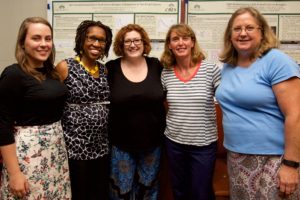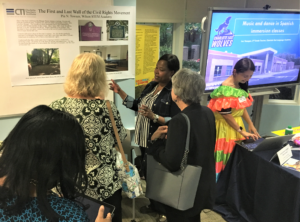Amy Ringwood, Biology, UNC Charlotte
Note: This seminar takes place at Discovery Place.
One of my favorite phrases is “Ontogeny recapitulates phylogeny”. The conservation of larval forms across diverse species is amazing, and provides important keys for phylogenetic groupings and evolutionary processes. Tadpole-like larvae are not just an amphibian form, but occur in an unlikely group, the tunicates (or sea squirts), linking tunicates to vertebrate lineage.
Learning about different larval forms and their biology (functional morphology, how they move, what they eat, etc.) is incredibly fascinating. But what is even more amazing is their metamorphosis, as this process transforms very similar looking larvae into very different adult species. This is a topic that can be investigated at a variety of different levels, from basic biological phenomena to more advanced perspectives (e.g. biological triggers, gene expression changes). In this seminar, fundamental processes of the life cycles of different invertebrates from aquatic and terrestrial habitat can be studied and compared. There will also be opportunities to work with living organisms associated with the “World Alive” Exhibits at Discovery Place (e.g. corals, jellyfish, frogs, etc.), as well as organisms collected from local and coastal habitats (insects, crustaceans, sea urchins, bivalves, etc.). It is also a topic that has literary and art connections – from Greek Mythology in Roman Poet Ovid’s “Metamorphoses” and his tales of human transformation into mythological forms that inspired Chaucer and Shakespeare, to Kafka’s somewhat dark novella “The Metamorphosis”, as well as numerous legends and works of art.
Explore curriculum units developed by Fellows in this seminar here.























 Home
Home